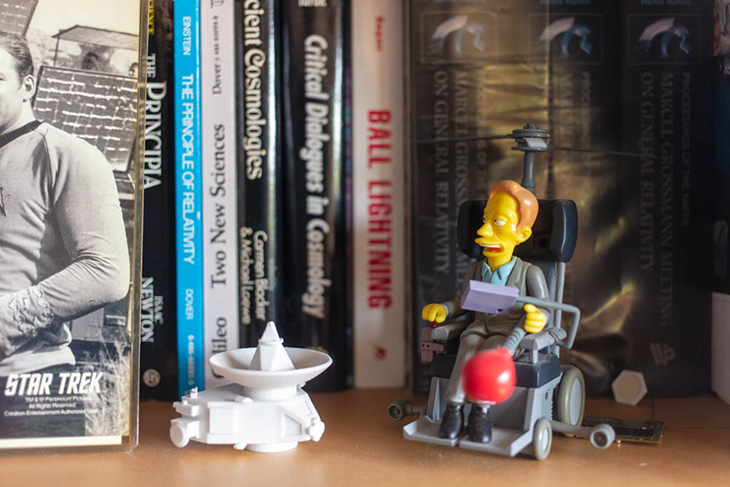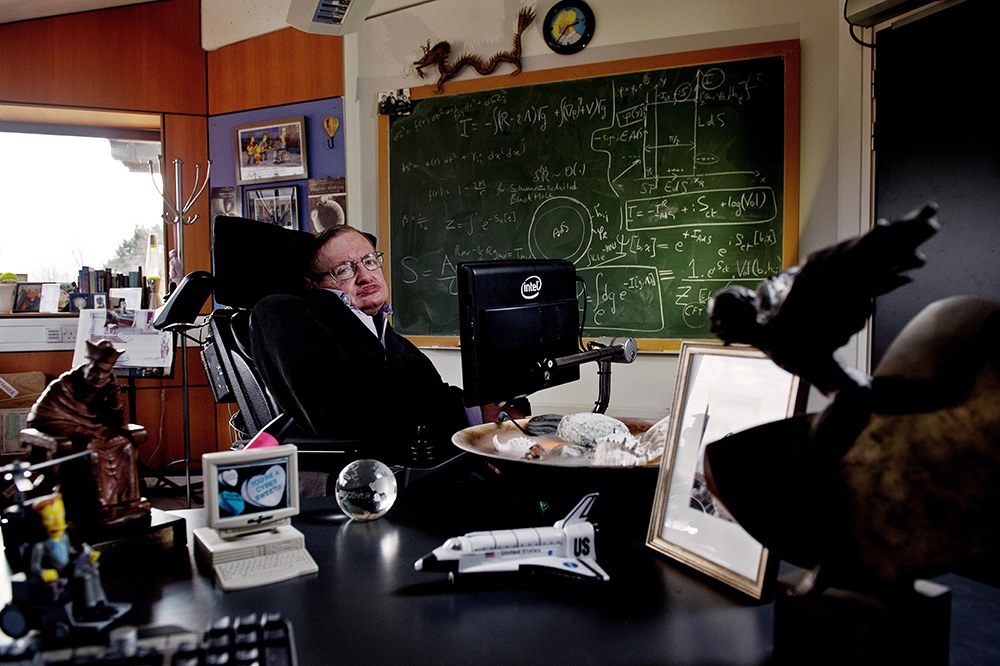Introducing Rakewell, Apollo’s wandering eye on the art world. Look out for regular posts taking a rakish perspective on art and museum stories.
With most people working from home for the last 14 months, few would be surprised if the office as it once was became a museum piece. Metaphorically, that is: nobody’s really expecting museums to start displaying staplers, ring binders, watercoolers and the like, plus that unfortunate Xerox from the office Christmas party, in vitrines to inspire the white-collar homeworkers of the future.
One office is heading to a museum, however. The contents of the late Stephen Hawking’s office are heading to the Science Museum, with a selection of his papers and personal effects going on display at its headquarters in London next year. Hawking’s archive has been allocated to Cambridge University Library.
As the Science Museum stated, in announcing the acquisition: ‘While rooms of decorative or artistic interest are often kept for posterity, spaces of science are rarely saved.’ Hawking’s day-to-day accoutrements include his personal reference library, a number of medals and scientific bets, as well as customised wheelchairs and the office furniture.
Courtesy Cambridge University Library & DAMPT

Come to think of it, there are a handful of offices preserved by museums. Notoriously, when displayed at Somerset House in London, the Gilbert Collection included a recreation of Arthur Gilbert’s office in Beverly Hills, complete with a wax figure of the collector in his tennis whites. The waxwork is currently stored in the V&A, as is – a rather different prospect – Frank Lloyd Wright’s office for Edgar J. Kaufmann, a space so careful that the intrusion of any Ryman’s stationary into it would look like a moustache on the Mona Lisa.
And at the Minneapolis Institute of Art, in 2012–13 artist Mark Dion created a curator’s office that contains traces of a fictional curator who disappeared from the museum in 1954 – an imagined period room that cuts against the grain of the historic rooms in the collection. Perhaps museums should start collecting our offices, after all.
Got a story for Rakewell? Get in touch at rakewell@apollomag.com or via @Rakewelltweets.




